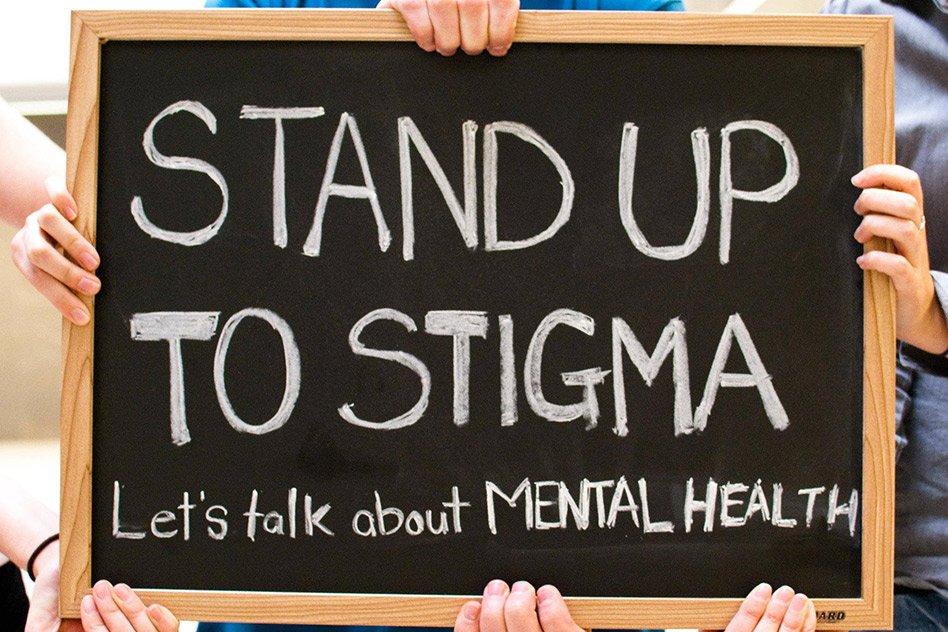Image Source: gsuwellness
“To know what you know and what you do not know, that is true knowledge” – Confucius
After trying to “wipe the slate clean” (so to speak) following Breaking Stigma Around Mental Health: Busting Some Common Myths, it is time to get started on educating us all on what mental health issues are and how common some of them are.
Mental health is the state of your mind, your psychological and emotional wellbeing and is just as important (if not more) than your physical health, the state of your body. Just like we can experience issues with our physical health, we can also experience issues with our mental health.
All mental health issues are not the same.
When we look at physical health, is a stomach bug the same as chicken pox? Is migraine the same as a broken ankle? Is a broken ankle the same as diabetes? No. Then how can all mental health issues be the same?
Mental health issues are not a biological defect.
Mental health issues lie on a continuum ranging from common mental health issues (e.g. depression, anxiety) to severe mental health issues (e.g. schizophrenia, psychosis). Typically, the impact of an individual’s mental health issues on themselves and others determines the severity of the mental health issue. Severe mental health issues are rarer than common mental health issues.
Statistics on mental health issues in India are limited.
Epidemiological studies is research that explores the patterns, causes and effects of health related conditions in specific populations. Lifetime prevalence rates investigate the number of people with a particular diagnosis at some point during their lives.
Reddy and Chandrasekar (1998) investigated 13 psychiatric epidemiological studies across India. They reported a lifetime prevalence rate of mental health issues of 5.8% amongst the population in India.
Deswal and Pawar (2012) investigated prevalence rates of mental health issues in the urban population of Pune, Maharashtra. They found that 5.03% of the population in India experienced a mental health issue at some point during their life.
Whether 5.8% or 5.03%, this is a significant amount of people experiencing mental health issues in a population of over 1 304 162 999 citizens.
Ganguli (2000) investigated the findings of fifteen epidemiological studies across India. They suggested the prevalence rates of mental health issues in India was 70.5 per 1000 people living in rural areas and 73 per 1000 people living in the urban areas.
Interestingly, depression was found to be one of the most prevalent mental health issues amongst the population in the studies. Depression is a common mental health issue.
Deswal and Pawar (2012) also found that lifetime prevalence rates of mental health issues were the highest among employed people and home makers. Depression was most common amongst married people. This does not mean that marriage or employment leads to depression. It is not as simple as that.
This shows that all people experiencing mental health issues do not “live in a mental institution” which is often the popular stereotype amongst people because of a lack of knowledge about mental health issues. Any one of us can experience a mental health issue at some point during our lives, just like we can experience a physical health issue.
Experiencing a mental health issue does not mean life is over. Neither does it mean that we belong in a mental institution. Given the right support, opportunities and motivation, anyone experiencing a mental health issue can succeed and enjoy life. It is all about understanding and managing your mental health and utilising appropriate professional (e.g. psychiatrist, psychologist) and personal (e.g. friends, family, society) support in doing so. In fact, many people who have experienced mental health issues have said that this experience has made them stronger and wiser as a person.
Yes, we have to question the accuracy of the epidemiological studies discussed in this article. We cannot be 100% certain that this is an accurate reflection of the current mental health status in India. This is because the studies are old, have flawed methodologies and do not take into account:
A) The number of people who are experiencing a mental health issue but have not been diagnosed or are not seeking any professional support for their mental health issues.
and
B) The number of people who are experiencing mental health issues and are unaware of it because of a lack of knowledge about mental health issues.
We believe in today’s day and age the prevalence rates of mental health issues in India are likely to be a lot higher than that suggested by the studies.
Many more people are likely to be experiencing mental health issues than 5.8% of the population.
Unfortunately, there are two main roadblocks to providing appropriate support to those experiencing mental health issues. These are A) the stigma and lack of knowledge about mental health issues and B) the lack of resources in India. As quoted in an earlier article, The World Health Organization (2005) reports that for every 100,000 people in India there are 0.03 psychologists, 0.2 psychiatrists and 0.05 psychiatric nurses.
Through these articles, we are trying to tackle roadblock A in hope of it having a positive effect of roadblock B.
A Useful Resource
The Shrinking Couch is a project by the Initiative for Mental Health and Living in India (IML India). It is “a network of individuals sharing personal experiences, resources & ideas on Mental Health“. More importantly, it is platform for people to read others personal experiences of mental health issues and share their own experiences. It is up to the writer if they wish to disclose their identity or write in anonymously. For more information visit http://theshrinkingcouch.com/ .
Let us know what you think.
References
Deswal, B. S. & Pawar, P. (2012). An Epidemiological Study of Mental Disorders at Pune, Maharashtra. Indian Journal of Community Medicine, 37, 116-121.
Ganguli, H. C. (2000). Epidemiological findings on prevalence of mental disorders in India. Indian Journal of Psychiatry, 42, 14–20.
Reddy, M.V. & Chandrasekar, C.R. (1998). Prevalence of mental and behavioral disorders in India: A meta-analysis. Indian Journal of Psychiatry, 40, 149–57.
WHO. (2005). World Health Statistics. Geneva: World Health Organization.











